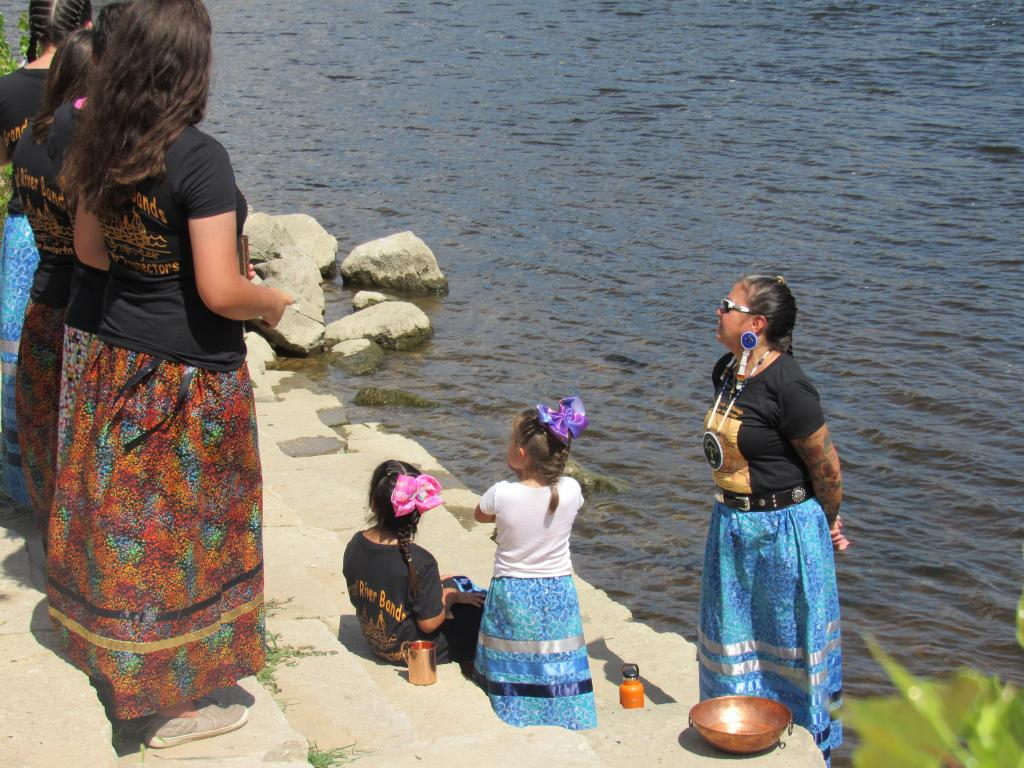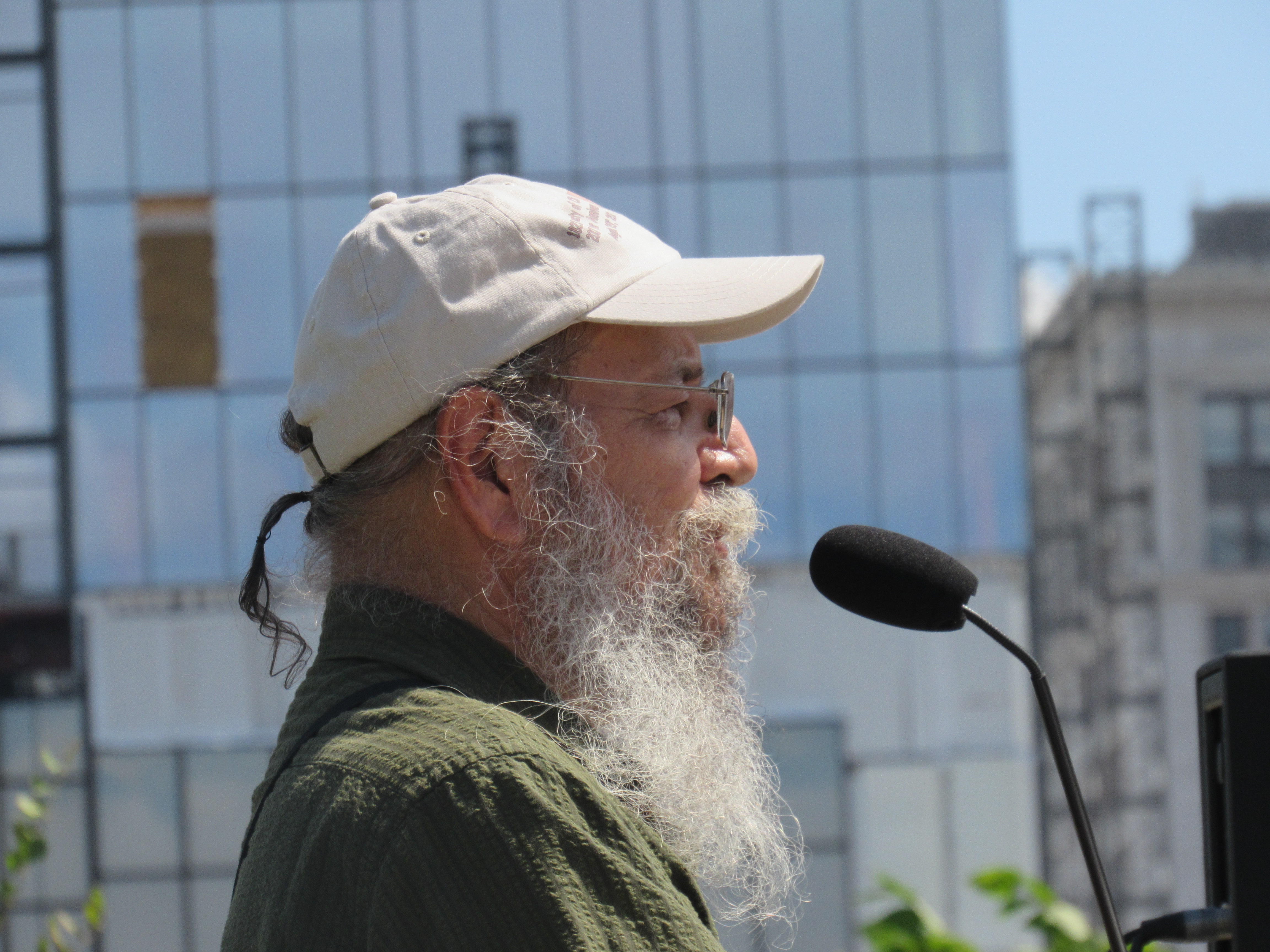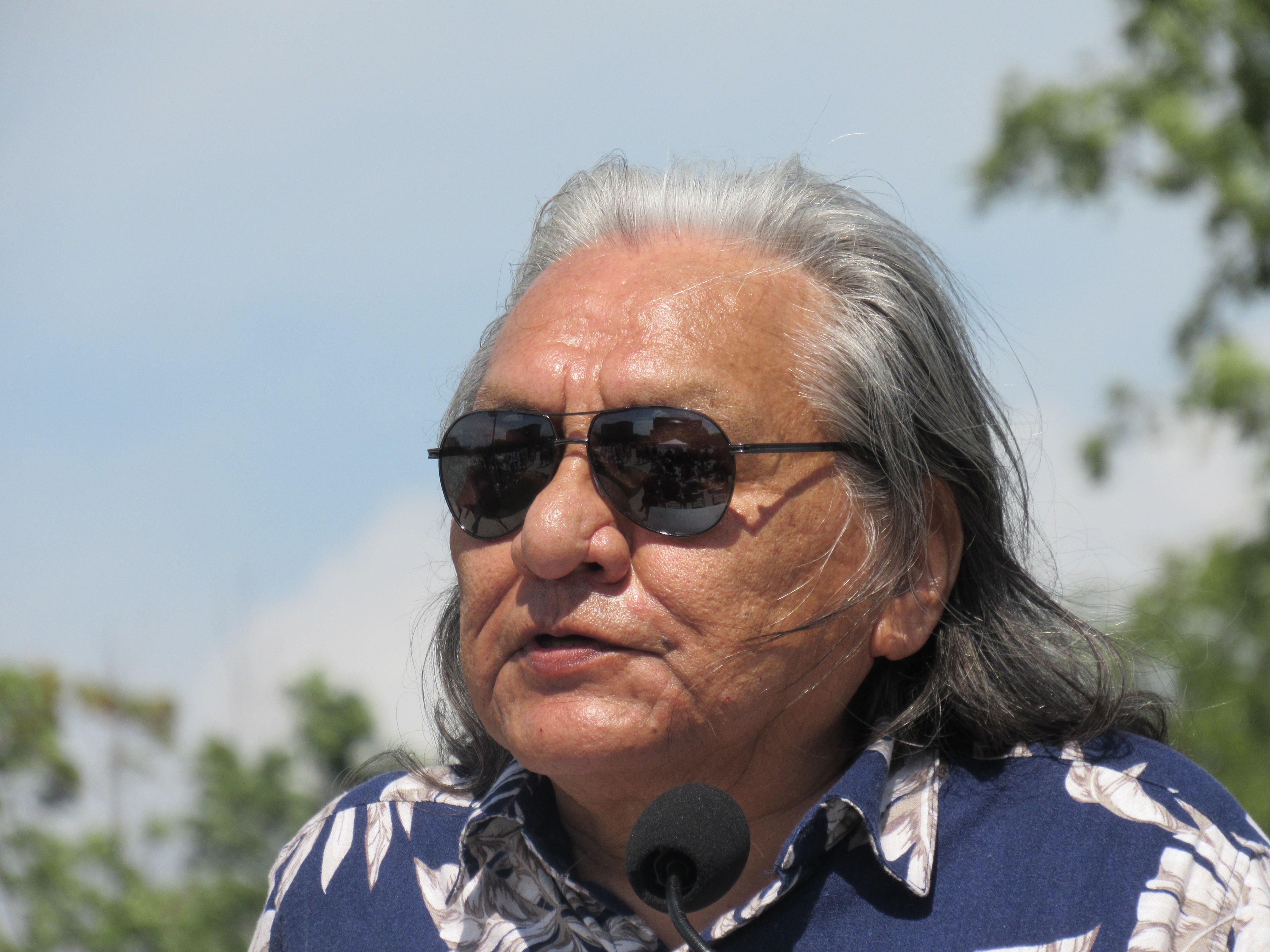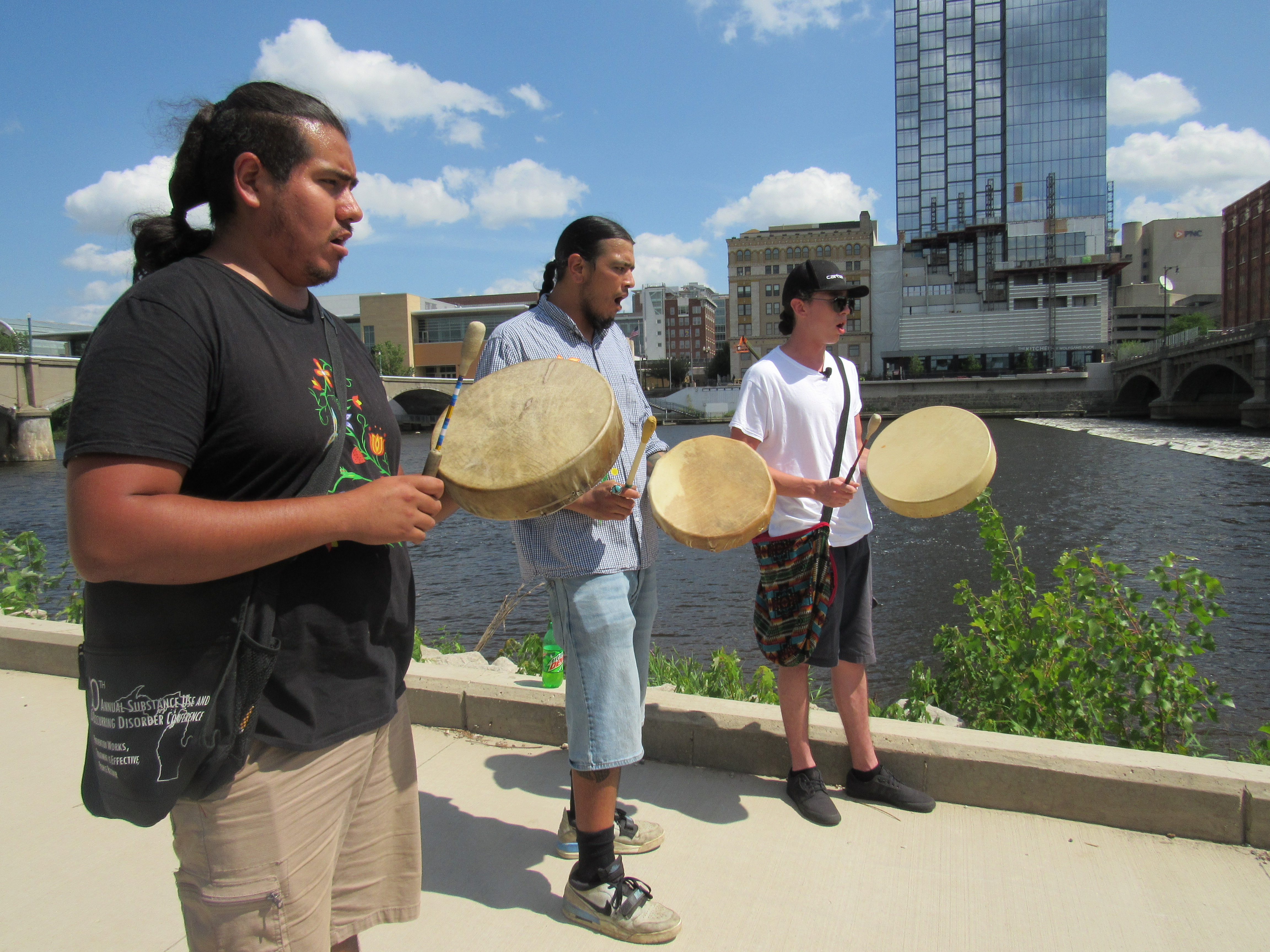
- Details
- By Levi Rickert
GRAND RAPIDS, Mich. — Ojibwe, Odawa and Potawatomi citizens gathered with state and local officials at Ah-Nab-Awen Park in downtown Grand Rapids, Mich. to commemorate the bicentennial of the Treaty of Chicago, which was signed on August 29, 1821.
Ron Yob, chairman of the Grand River Bands of Ottawa Indians, served as the emcee of the bicentennial commemoration, which included the unveiling of a permanent historical marker and a water ceremony on the banks of the Grand River. In attendance to commemorate the bicentennial was Michigan State Rep. Rachel Hood (D) who read a proclamation from the State of Michigan and Dale Robertson, president and CEO of the Grand Rapids Public Museum.
Want more Native News? Get the free daily newsletter today.
The Treaty of Chicago (1821) was signed by representatives of the Council of the Three Fires the Ojibwe, Odawa and Potawatomi and Michigan Territorial Governor Lewis Cass and Solomon Sibely for the United States. Among the representatives for the respective tribes were eight Ottawa leaders, two Ojibwe leaders, and 55 Potawatomi leaders. In signing the treaty, the representatives ceded land to the United States. The treaty allowed for the establishment of cities, towns and villages that exist today in West Michigan. While the treaty was signed in 1821, the City of Grand Rapids was not incorporated until 1850.

“I don’t want to call today a celebration, but a commemoration,” Yob said. “Anytime you have something that lasts for two hundred years, you should talk about the resiliency of that document that ceded the lands. One of the things the treaty did was establish a boundary for the southern band of the Grand River Ottawa, and it reaffirmed hunting rights on ceded land.”
Joe Genia, former chairman of the Grand River Bands of Ottawa Indians, offered a perspective that the treaty validated the Ottawa people’s existence.
Support news coverage that inspires, uplifts, and informs Native Americans.
“The thing that should come out of this commemoration is that this treaty is a document between sovereign powers. The United States came to us, the Ottawa people in a spirit of cooperation, mutual defense…treaties became the supreme law of the land,” Genia said. “The treaty document validated us as Ottawa people. This is where we are from; we were created here with all of the animals. This is where we are from as Ottawa people. This is our homeland.”

West Michigan remains the home for the People of the Three Fires, with three federally recognized tribes located there: The Match-E-Be-Nash-She-Wish Band of Pottawatomi Indians in Shelbyville; the Nottawaseppi Huron Band of the Potawatomi in Athens; and the Pokagon Band of Potawatomi in Dowagiac.
“I am honored to be here today with the Grand River Bands of Ottawa to commemorate the signing of the treaty and I look forward to the honoring of this treaty that was signed between sovereign nations,” Gun Lake Tribe Chairman Bob Peters told Native News Online.
More than a dozen women and girls performed a water ceremony as the Nimkee Fox drum concluded the commemoration.

More Stories Like This
Native News Weekly (August 25, 2024): D.C. BriefsUS Presidents in Their Own Words Concerning American Indians
Native News Weekly (December 14, 2025): D.C. Briefs
Wounded Knee Massacre Site Protection Bill Passes Congress
Two Murdered on Colville Indian Reservation
Help us defend tribal sovereignty.
At Native News Online, our mission is rooted in telling the stories that strengthen sovereignty and uplift Indigenous voices — not just at year’s end, but every single day.
Because of your generosity last year, we were able to keep our reporters on the ground in tribal communities, at national gatherings and in the halls of Congress — covering the issues that matter most to Indian Country: sovereignty, culture, education, health and economic opportunity.
That support sustained us through a tough year in 2025. Now, as we look to the year ahead, we need your help right now to ensure warrior journalism remains strong — reporting that defends tribal sovereignty, amplifies Native truth, and holds power accountable.
 The stakes couldn't be higher. Your support keeps Native voices heard, Native stories told and Native sovereignty defended.
The stakes couldn't be higher. Your support keeps Native voices heard, Native stories told and Native sovereignty defended.
Stand with Warrior Journalism today.
Levi Rickert (Potawatomi), Editor & Publisher

